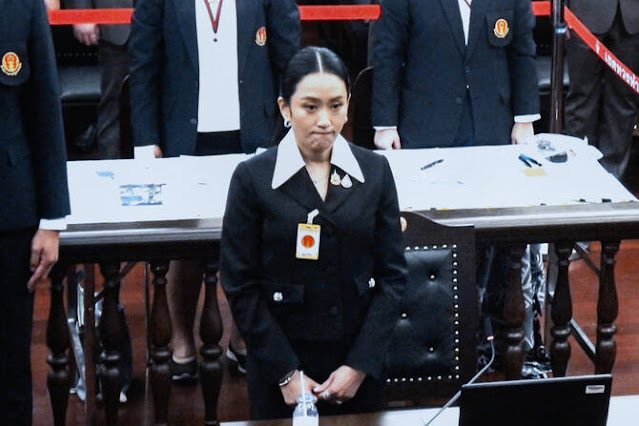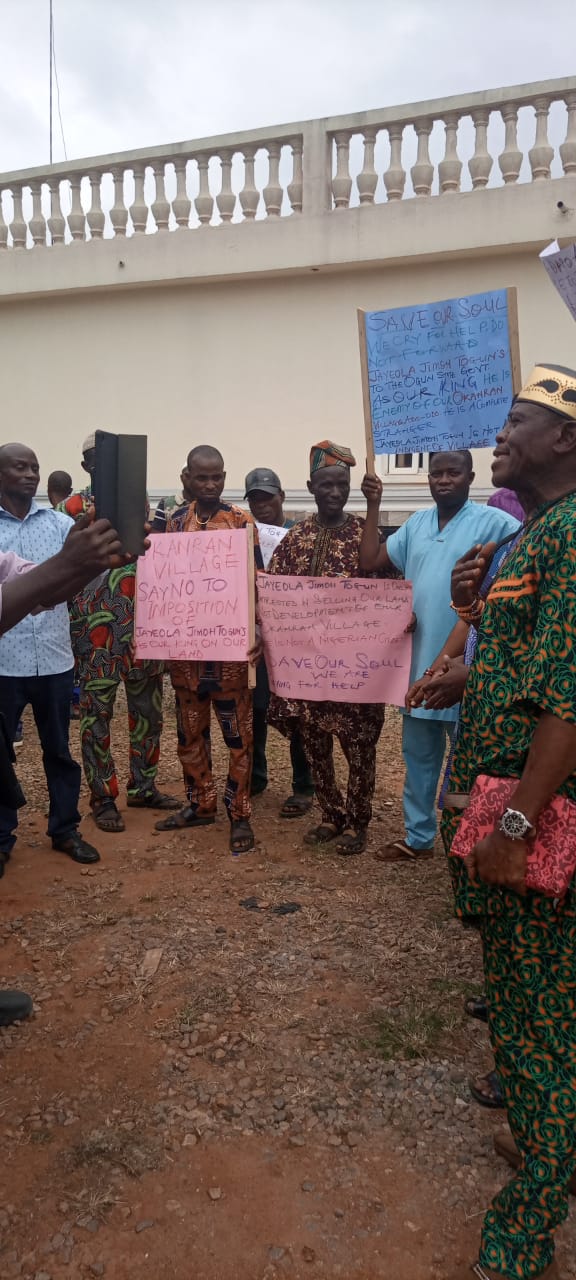In a dramatic turn of events that has sent shockwaves through Thailand’s political landscape, Prime Minister Paetongtarn Shinawatra was removed from office on Friday, August 29, 2025, by the country’s Constitutional Court. The ruling, which came just one year into her tenure, found Paetongtarn guilty of violating ethical standards, a decision that has reignited debates about the judiciary’s role in Thai politics, the influence of the military, and the fragile balance of power in the Southeast Asian nation. The court’s verdict stemmed from a leaked phone conversation between Paetongtarn and Cambodia’s former leader Hun Sen, during which she was accused of compromising Thailand’s national interests and undermining the military’s authority. This incident, combined with the court’s determination that Paetongtarn lacked the constitutional qualifications to serve as prime minister, has plunged Thailand into yet another chapter of political uncertainty.
The Leaked Phone Call: A Diplomatic Misstep or Political Sabotage?
The catalyst for Paetongtarn’s dismissal was a leaked phone conversation with Hun Sen, Cambodia’s long-serving former prime minister, which took place at a time when tensions between Thailand and Cambodia were escalating over a disputed border region. The two nations have a history of friction, particularly over the Preah Vihear temple, a UNESCO World Heritage site whose ownership has been contested for decades. In 2011, skirmishes over the temple led to deadly clashes, and the memory of those conflicts looms large in the collective psyche of both countries. The leaked call, which occurred as both nations were reportedly on the brink of another armed confrontation, exposed Paetongtarn to intense scrutiny and criticism.
In the conversation, Paetongtarn addressed Hun Sen as “uncle,” a term that, while culturally common in Southeast Asia to denote respect or familiarity, was perceived by many in Thailand as overly deferential, especially given the sensitive context. More controversially, she referred to a Thai military commander as her “opponent,” a remark that sparked outrage among Thailand’s powerful armed forces and their conservative allies. Critics argued that her language suggested a lack of loyalty to Thailand’s military establishment, which has long played a central role in the country’s politics, often acting as a kingmaker in times of crisis.
The timing of the leak could not have been more precarious. Thailand and Cambodia were reportedly weeks away from armed conflict, with military deployments and nationalist rhetoric intensifying on both sides. The leaked call, which was widely circulated in the Thai media, painted Paetongtarn as a leader willing to “kowtow” to a foreign adversary at the expense of national pride and security. Conservative lawmakers, already skeptical of Paetongtarn’s leadership due to her family’s polarizing political legacy, seized on the incident to accuse her of undermining Thailand’s sovereignty. The backlash was swift and severe, with protests erupting in Bangkok and other major cities, calling for her resignation.
Paetongtarn, in her defense, issued a public apology, insisting that her intention during the call was to de-escalate tensions and prevent a full-scale war. “My priority was to protect the lives of Thai citizens and maintain peace with our neighbor,” she said in a televised address. “The conversation was taken out of context, and I deeply regret any misunderstanding it caused.” However, her apology did little to quell the anger of her critics, who saw the incident as emblematic of her inexperience and inability to navigate Thailand’s complex political landscape.
The Constitutional Court’s Ruling: Ethics and Qualifications Under Scrutiny
The Constitutional Court’s decision to remove Paetongtarn was based on two key findings: a violation of ethical standards and a lack of qualifications under Thailand’s Constitution. The ethics violation centered on the leaked phone call, which the court deemed a breach of the prime minister’s duty to uphold national dignity and protect Thailand’s interests. The judges argued that Paetongtarn’s conduct during the conversation demonstrated a lack of judgment unbecoming of a prime minister, particularly in the context of heightened tensions with Cambodia.
The second, and perhaps more surprising, aspect of the ruling was the court’s determination that Paetongtarn lacked the necessary qualifications to hold office. While the specifics of this finding were not fully disclosed in the court’s public statement, legal analysts speculate that it may relate to technicalities in her appointment process or questions about her eligibility under Thailand’s 2017 Constitution, which imposes strict criteria for political officeholders. The Constitution, drafted under the supervision of the military junta that ruled Thailand from 2014 to 2019, has been criticized for its vague language and susceptibility to interpretation, often used as a tool to target political opponents.
The court’s decision to oust Paetongtarn marks the fifth time in 17 years that a Thai prime minister has been removed by judicial intervention, highlighting the judiciary’s outsized role in the country’s politics. Previous prime ministers, including Paetongtarn’s father, Thaksin Shinawatra, and her aunt, Yingluck Shinawatra, were also deposed by the Constitutional Court or military coups, underscoring the precarious nature of political leadership in Thailand. The recurring pattern of judicial and military interventions has fueled accusations that Thailand’s democratic institutions are undermined by unelected elites who wield disproportionate power.
Political Fallout: Coalition Collapse and Public Reaction
The fallout from Paetongtarn’s dismissal was immediate and far-reaching. Her coalition government, already a fragile alliance of diverse political factions, was thrown into disarray when her main coalition partner, a conservative-leaning party with close ties to the military, withdrew its support in protest over the leaked call. The walkout brought Paetongtarn’s government to the brink of collapse, as she struggled to maintain a parliamentary majority. The defection underscored the deep divisions within Thailand’s political system, where ideological differences and personal rivalries often overshadow policy debates.
Public reaction to the scandal was equally polarized. Supporters of Paetongtarn, many of whom are aligned with her family’s Pheu Thai Party, rallied in her defense, arguing that the leaked call was a deliberate attempt to sabotage her leadership. They pointed to her family’s long history of political persecution, including Thaksin’s ousting in a 2006 coup and Yingluck’s removal in 2014, as evidence of a concerted effort by Thailand’s conservative establishment to suppress the Shinawatra dynasty. “This is not about ethics; it’s about power,” said one protester at a pro-Paetongtarn rally in Bangkok. “The military and the courts are afraid of the Shinawatras because they represent the people.”
On the other hand, critics of Paetongtarn, including royalist and nationalist groups, celebrated the court’s decision as a victory for Thailand’s sovereignty and military honor. They accused her of prioritizing personal relationships and political expediency over national interests, with some even labeling her actions as treasonous. Social media platforms, particularly X, were flooded with heated debates, memes, and hashtags, reflecting the deep divisions in Thai society. Posts analyzed from X showed a mix of support for Paetongtarn’s diplomatic efforts and condemnation of her perceived weakness, with trending hashtags like #PaetongtarnOut and #SaveThailand gaining traction.
The Shinawatra Legacy: A Family Under Siege
Paetongtarn’s dismissal cannot be fully understood without examining the broader context of the Shinawatra family’s role in Thai politics. The Shinawatras have been a dominant force in Thailand for over two decades, with Thaksin Shinawatra’s populist policies winning the hearts of rural and working-class voters in the early 2000s. His Thai Rak Thai Party, and later the Pheu Thai Party, championed policies such as universal healthcare and rural development, earning a loyal base of supporters in Thailand’s north and northeast. However, these policies, combined with Thaksin’s brash style and perceived challenges to the traditional power structures, made him a target of the country’s royalist-military elite.
Thaksin’s ousting in the 2006 coup, followed by years of exile, set the stage for a prolonged struggle between his supporters, known as the “Red Shirts,” and the royalist “Yellow Shirts,” who backed the military and monarchy. Yingluck Shinawatra’s premiership from 2011 to 2014 ended in a similar fashion, with a Constitutional Court ruling removing her from office, followed by a military coup. Paetongtarn, as the youngest daughter of Thaksin, was seen as the latest torchbearer of the Shinawatra legacy, but her rapid rise to power at the age of 38 raised questions about her readiness to lead a deeply divided nation.
Paetongtarn’s supporters argue that her dismissal is part of a broader campaign to dismantle the Shinawatra political machine. They point to the timing of the leaked call, which surfaced just as her government was gaining traction on economic reforms, as evidence of a coordinated effort to undermine her. Critics, however, argue that Paetongtarn’s lack of political experience and reliance on her family’s name made her vulnerable to such controversies. Her decision to address Hun Sen as “uncle” and her remarks about the Thai military were seen by some as rookie mistakes, reflecting her inexperience in navigating Thailand’s complex political and cultural dynamics.
The Role of the Military and Judiciary in Thai Politics
The dismissal of Paetongtarn highlights the enduring influence of Thailand’s military and judiciary, which have repeatedly intervened in the country’s politics over the past two decades. The military, which has staged 12 successful coups since 1932, views itself as the ultimate guardian of Thai national identity, closely tied to the monarchy and traditional institutions. The Constitutional Court, meanwhile, has emerged as a powerful tool for enforcing the military’s vision, often using vague constitutional provisions to target elected leaders.
The court’s decision to remove Paetongtarn has reignited debates about the state of democracy in Thailand. Critics argue that the judiciary’s frequent interventions undermine the will of the electorate, as prime ministers chosen through democratic processes are repeatedly ousted by unelected institutions. “Thailand’s democracy is a democracy in name only,” said a political analyst based in Bangkok, speaking on condition of anonymity. “The military and judiciary act as a shadow government, ensuring that no leader can challenge their authority.”
The military’s influence was also evident in the fallout from the leaked call. The Thai armed forces, which command significant respect and resources, were quick to condemn Paetongtarn’s remarks, with senior generals publicly expressing their displeasure. The military’s reaction, combined with the defection of Paetongtarn’s coalition partner, suggests that the armed forces played a significant role in orchestrating the political crisis that led to her dismissal.
Cambodia-Thailand Relations: A History of Tensions
The leaked phone call must also be viewed in the context of Thailand’s fraught relationship with Cambodia. The two countries share a long history of border disputes, most notably over the Preah Vihear temple, which was awarded to Cambodia by the International Court of Justice in 1962 but remains a flashpoint for nationalist sentiments in both nations. The 2011 clashes, which left dozens dead and displaced thousands, underscored the volatility of the border issue and the domestic political consequences for leaders perceived as weak on national security.
Paetongtarn’s call with Hun Sen, who stepped down as Cambodia’s prime minister in 2023 but remains a powerful figure in the country, was intended as a diplomatic gesture to prevent a repeat of the 2011 violence. However, her choice of words and the subsequent leak turned what could have been a private diplomatic exchange into a public relations disaster. The incident also highlighted the challenges of conducting diplomacy in an era of heightened transparency, where private conversations can be weaponized for political gain.
Hun Sen, a polarizing figure known for his authoritarian rule in Cambodia, has long been a lightning rod for criticism in Thailand. His close ties to the Shinawatra family, particularly Thaksin, who was granted Cambodian citizenship during his exile, have fueled suspicions among Thai nationalists that the Shinawatras prioritize personal relationships over national interests. The “uncle” remark, while culturally innocuous in some contexts, was seen as evidence of Paetongtarn’s alignment with a foreign leader viewed with distrust by many Thais.
The Caretaker Government and the Path Forward
Following Paetongtarn’s dismissal, the cabinet led by Deputy Prime Minister Phumtham Wechayachai is expected to remain in place on a caretaker basis until parliament approves a new prime minister. The process of selecting a new leader is likely to be contentious, given the fractured state of Thai politics and the deep divisions within the ruling coalition. The caretaker cabinet also has the option of dissolving parliament and calling for a new election, a move that could further destabilize the country but might also provide an opportunity to reset the political landscape.
The selection of a new prime minister will depend on the ability of political factions to forge a new coalition, a task complicated by the competing interests of the Pheu Thai Party, conservative factions, and smaller parties vying for influence. Analysts predict that the military and its allies will push for a candidate who aligns with their interests, potentially leading to a government that prioritizes stability over reform. However, the Pheu Thai Party, with its strong grassroots support, is unlikely to cede power without a fight, setting the stage for a prolonged period of political wrangling.
Implications for Thailand’s Future
Paetongtarn’s dismissal raises critical questions about the future of Thai politics and the prospects for democratic governance. The repeated ousting of elected leaders by the judiciary and military has eroded public trust in the political system, fueling disillusionment among younger generations who have grown increasingly vocal in their demands for reform. The 2020-2021 youth-led protests, which called for changes to the monarchy and the dismantling of the military’s political influence, demonstrated the growing frustration with Thailand’s power structures.
The Pheu Thai Party, despite its setbacks, remains a formidable force, with a loyal base of supporters and a track record of winning elections. However, the party’s ability to govern effectively is hampered by the constant threat of judicial and military intervention. Paetongtarn’s dismissal may galvanize her supporters, who see her as a victim of an entrenched elite, but it could also embolden conservative forces seeking to maintain their grip on power.
On the international stage, the crisis could strain Thailand’s relations with Cambodia and other regional neighbors. The border tensions that precipitated the leaked call remain unresolved, and the political instability in Bangkok may weaken Thailand’s ability to project strength in regional diplomacy. ASEAN, the regional bloc to which both Thailand and Cambodia belong, has so far remained silent on the issue, but the potential for renewed border clashes could draw the attention of international mediators.
Conclusion: A Nation at a Crossroads
The dismissal of Paetongtarn Shinawatra is more than just a political scandal; it is a reflection of the deeper tensions that define Thailand’s struggle for democracy and stability. The interplay of military power, judicial overreach, and populist politics has created a volatile environment where elected leaders face constant challenges to their authority. Paetongtarn’s ousting, while rooted in a specific incident, is part of a broader pattern of political upheaval that has plagued Thailand for decades.
As the country navigates this latest crisis, the path forward remains uncertain. Will the caretaker government stabilize the situation, or will it lead to further polarization and unrest? Can the Pheu Thai Party regroup and reclaim its mandate, or will conservative forces consolidate their control? And what does this mean for Thailand’s aspirations to build a more inclusive and democratic society?
For now, Thailand stands at a crossroads, grappling with the legacy of its past and the challenges of its future. The dismissal of Paetongtarn Shinawatra is a stark reminder of the fragility of democratic institutions in the face of entrenched power structures. As the nation awaits the selection of a new prime minister, the world watches to see whether Thailand can break free from its cycle of political crises and chart a path toward a more stable and equitable future.








